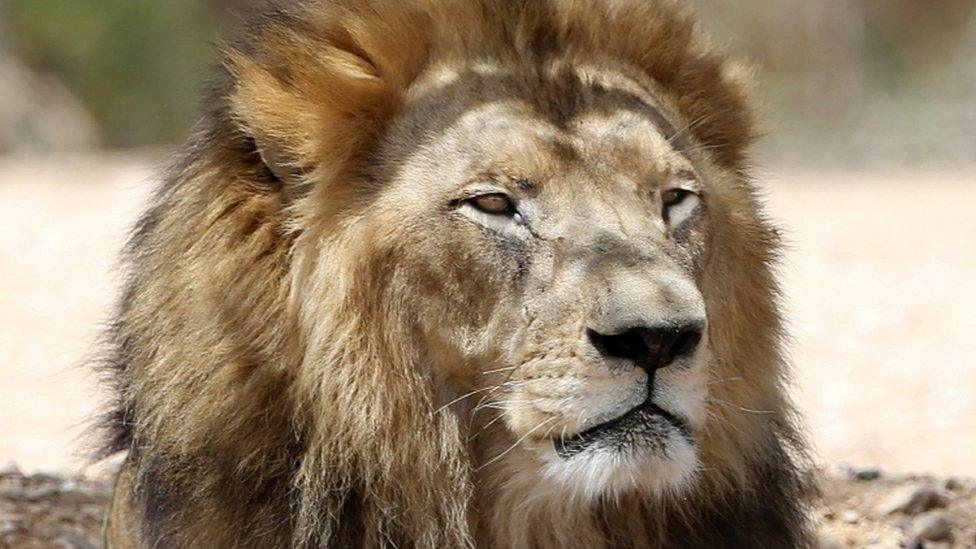Harambe gorilla killing: Zoo defends shooting
- Published
Cincinnati Zoo director: "Looking back, we would make the same decision"
The director of a US zoo has defended the decision to shoot a gorilla after a small boy fell into its enclosure.
Thane Maynard of Cincinnati Zoo said he would make the same call today as the gorilla was agitated and was hurting the four-year-old.
The killing of the male western lowland gorilla, Harambe, has sparked anger.
The boy's family said in a statement released to US media that he was "doing just fine" and thanked zoo staff for their quick action.
"We know that this was a very difficult decision for them, and that they are grieving the loss of their gorilla," the family are reported as saying.
The child has not been publicly identified.
Mr Maynard said it was easy to say things should have been done differently after the incident was over and the child was safe, but people making those criticisms "don't understand primate biology... and the danger the child was in".
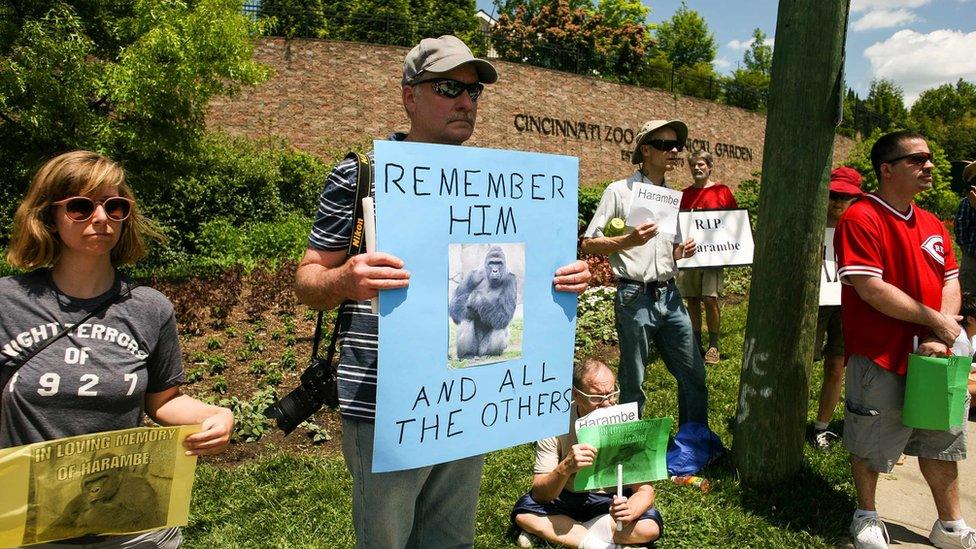
Nearly 200,000 people have signed an online petition protesting against Harambe's killing
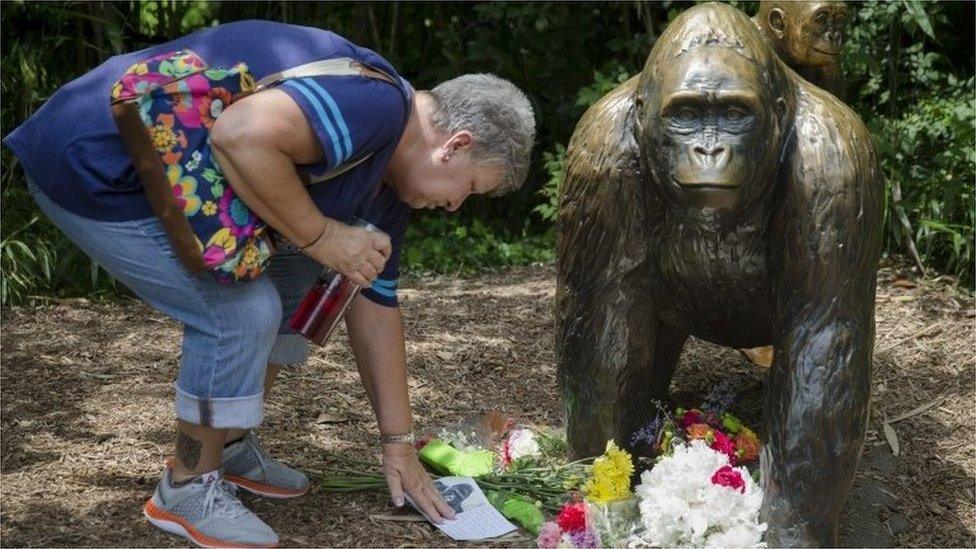
The zoo hopes to reopen its gorilla world display soon
Video footage of Saturday's incident shows the gorilla dragging the child through the moat in its enclosure.
Mr Maynard described how Harambe "swished him around in the water by the ankle" then carried him on to land.
The gorilla "wasn't trying to eat the child," he said, "but he was disorientated and wanted to get the child to stay there".
The screams from the crowd were adding to Harambe's agitation, the zoo director said.
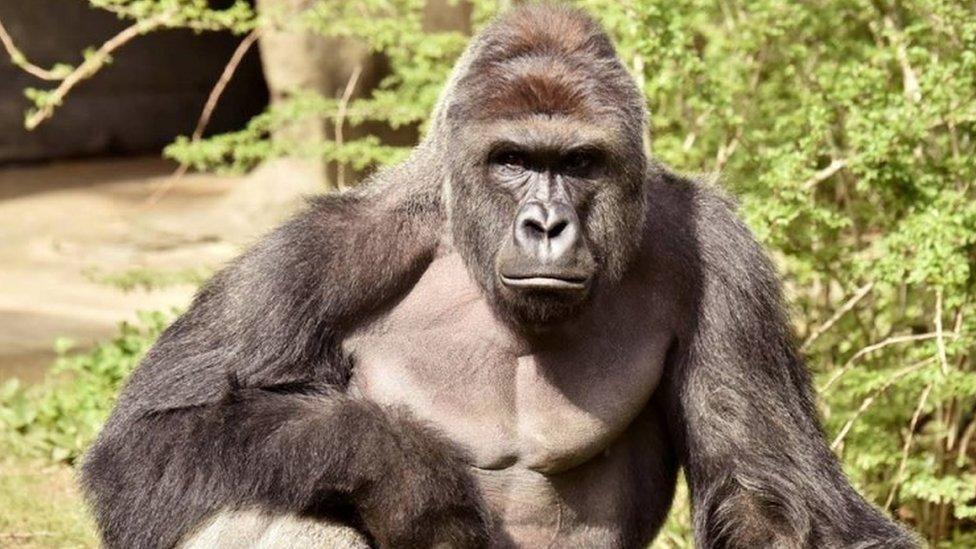
The 17-year-old male gorilla, Harambe, was brought to the zoo in 2014
US wildlife biologist Jeff Corwin told the BBC that he did not think zoo staff had any alternative as the gorilla was so powerful - easily six to eight times as powerful as an adult male human.
Tranquilising a large animal is not instant, he said. It could take many minutes and require multiple darts.
Harambe was born in captivity in Texas and moved to Cincinnati zoo in 2014, where it was hoped he could be part of the breeding programme. Fifty gorilla babies have been born at the zoo in the past 46 years, Mr Maynard said.
Western lowland gorillas are the most numerous of the four gorilla subspecies and live in the rainforests of central Africa. They mainly eat plants and fruit.
- Published30 May 2016
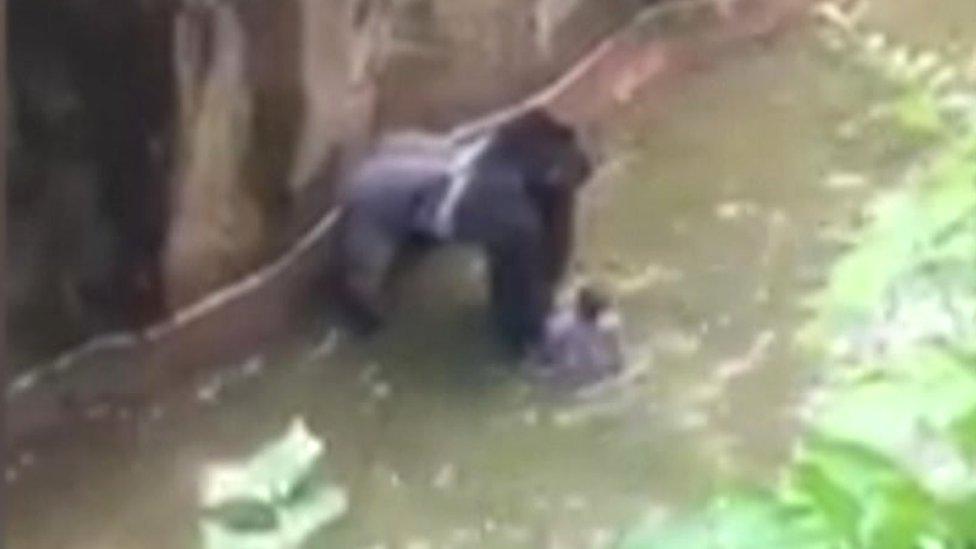
- Published29 May 2016

- Published29 May 2016
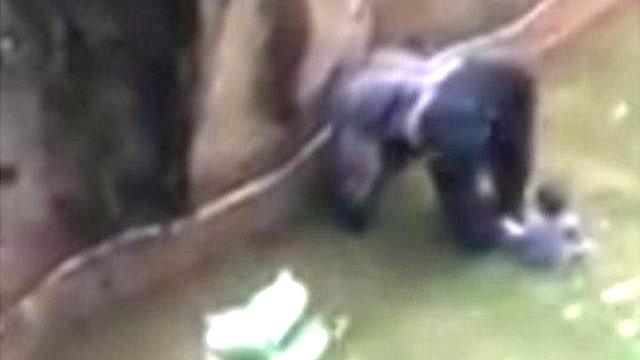
- Published22 May 2016
